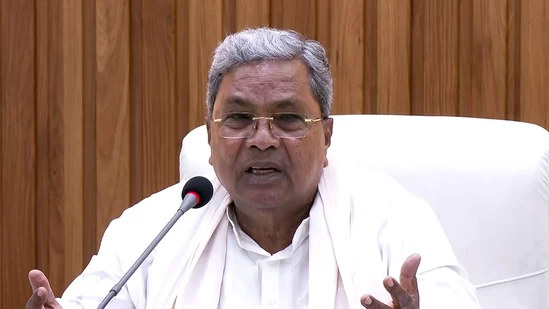Latest Updates
8-Month-Old Baby in Bengaluru Tests Positive for Human Metapneumovirus (HMPV)
.webp)
An 8-month-old baby in Bengaluru, has tested positive for Human Metapneumovirus (HMPV). The infant was admitted to a private hospital in Bengaluru for treatment, though neither the baby nor their family had any recent travel history or exhibited alarming symptoms. The Bruhat Bengaluru Mahanagara Palike (BBMP) health department has shared that the case does not show signs of unusual severity.
The Karnataka Health Department confirmed the positive test for HMPV in the baby, and a sample has been sent to the National Institute of Virology (NIV) in Pune for further confirmation. The baby, who is eight months and eight days old, also tested positive for Human Rhinovirus/Enterovirus on January 3, according to a test report from Baptist Hospital in Bengaluru.
Harsh Gupta, Principal Secretary of Karnataka’s Health and Family Welfare Department, stated that HMPV is commonly detected in children under the age of 11. He added that around 1% of samples tested for respiratory illnesses show positivity for the virus. Gupta reassured the public that while this may be the first reported case, HMPV is not a cause for alarm, as it behaves similarly to other respiratory viruses, often causing cold and flu-like symptoms, especially in younger and older individuals.
Currently, there is no detailed data on the strain of HMPV detected in the baby, and health officials are awaiting more information from China regarding the specific strain. In response to the situation, Karnataka Health Minister Dinesh Gundu Rao has scheduled a meeting on January 6 to review and discuss the case further.
HMPV primarily affects children and is responsible for approximately 0.7% of global flu cases. However, Karnataka’s health authorities have noted a lack of detailed information about the specific strain circulating in the region. Amid rising concerns about the virus, there have been reports from China, fueled by social media, suggesting that hospitals are overwhelmed due to a surge in respiratory illnesses, including HMPV. These reports also mention an increase in flu cases, Mycoplasma pneumoniae, and COVID-19, causing overcrowding in hospitals and cemeteries.
HMPV was first identified in 2001 by researchers in the Netherlands and is a significant cause of acute respiratory infections, according to the American Lung Association. The virus is primarily spread through close contact with infected individuals, particularly through respiratory droplets from coughing or sneezing, or by touching contaminated surfaces. In the United States, HMPV is most commonly seen during the winter and spring months, often overlapping with other respiratory illnesses like Respiratory Syncytial Virus (RSV) and influenza.
The symptoms of HMPV can range from mild to severe and typically include a cough, fever, runny or stuffy nose, and sore throat. In some cases, individuals may experience wheezing, shortness of breath, or even a rash as part of the infection. Despite its potential for serious illness, health officials have emphasized that there is no immediate cause for panic.









